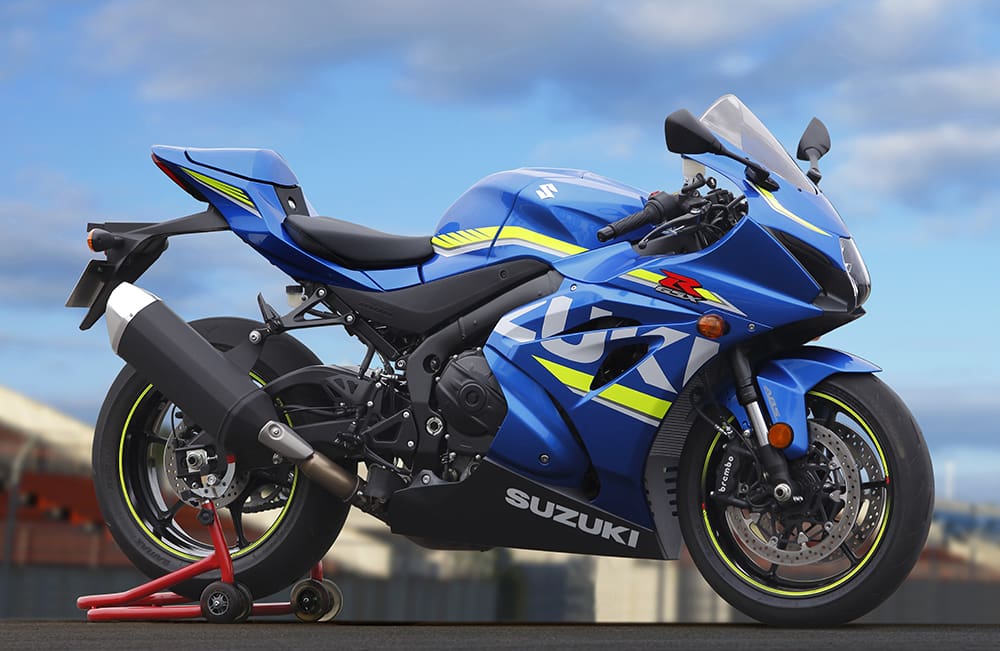Suzuki’s flagship superbike needs updates if it’s to survive in key markets.
Suzuki appears to be turning its back on the sportsbike market as it’s emerged that the GSX-R1000 hasn’t been certified to meet ‘Euro 5’ emissions rules used in Europe and mirrored in several other global markets.
The Euro 5 saga has been rumbling along for years, initially causing concern among manufacturers how they’d meet its tight limits, particularly restrictions on emissions of non-methane hydrocarbons, and developing the technology to hit goals of catalyst monitoring and OBD-II diagnosis standards. The latter elements were postponed to a planned ‘Euro 5+’ update, due in 2024, while the emissions limits – which are particularly hard to meet with high-revving engines – led to an explosion of new larger capacity parallel-twins and the development of variable-valve timing systems. The last remaining four-cylinder 600cc sportsbikes were dropped from European markets: weak sales meant they didn’t justify the expensive updates needed to comply with the rules.

While most of the four-cylinder 1000cc superbikes on sale have been updated to meet the rules, the Suzuki GSX-R1000 is an exception. Despite being a relatively new model, only launched five years ago, and being in the forefront of the variable-valve timing revolution thanks to an unusual, all-mechanical system derived from the GSX-RR MotoGP bike, Suzuki hasn’t put the GSX-R1000 through Euro 5 certification. It’s remained on sale thanks to ‘end of series’ rules that allow up to two years for manufacturers to sell off stocks of non-compliant models, but that period of grace expires on 31 December.
The result is that Suzuki either needs to launch a new or revamped GSX-R1000 for 2023 or to pull the bike from markets all over Europe. AMCN understands the second option is the one Suzuki will take, at least temporarily until a next-generation version is ready for launch. Suzuki followed the same path with the Hayabusa, which was dropped several years ago but reintroduced with the debut of the updated 2021 model.
Since both the GSX-R750 and GSX-R600 have long since disappeared from Euro markets, missing out on the previous ‘Euro 4’ emissions limits, the move will potentially leave only the learner-legal GSX-R125 carrying the famous GSX-R badge.
Combined with Suzuki’s withdrawal from the MotoGP championship next year, and the fact the firm hasn’t fielded a works effort in WorldSBK since 2015, the company is shifting its focus away from sportsbikes and racing, at least for the moment.